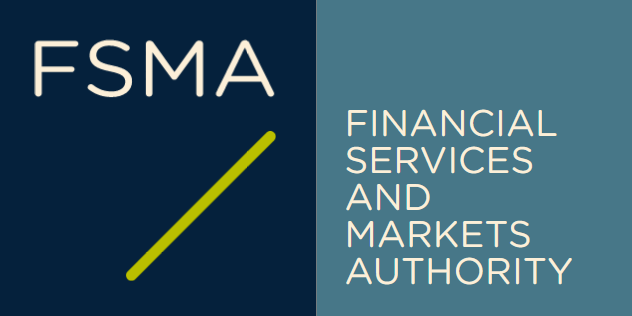FSB Global Regulatory Framework for Crypto-asset Activities

In July 2023 the FSB (i.e. the Financial Stability Board, not the Federal Security Service of the Russian Federation 😉) published "its global regulatory framework for crypto-asset activities to promote the comprehensiveness and international consistency of regulatory and supervisory approaches" (holy shit, what a sentence):
https://www.fsb.org/2023/07/fsb-global-regulatory-framework-for-crypto-asset-activities/
It actually consists of two sets of recommendations:
I. High-level recommendations for the regulation, supervision and oversight of crypto-asset activities and markets.
II. Revised high-level recommendations for the regulation, supervision, and oversight of “global stablecoin” arrangements. (note the "revised" and the different scope)
If you read the FSB's introductory notes, they explicitly state these recommendations are mainly focused on addressing risks to financial stability, not so much specific risk categories such as cyber security, data privacy, etc.
I am (by far) not a policy expert, but if you read the guidelines (see below), I think it is quite obvious the idea here is to regulate crypto-asset providers pretty much the same way as any other (key) player in the financial sector.
I reckon the European MiCA legislation does a pretty good job at translating these recommendations into law. However, the main challenge remains: how to regulate DeFi, since there is not (at least not always) a single, centralized party to specifically target. But that is for another article!
Recommendations for the oversight of crypto-asset activities and markets
- Recommendation 1: Regulatory powers and tools
Authorities should have and utilise the appropriate powers and tools, and adequate resources to regulate, supervise, and oversee crypto-asset activities and markets, and enforce relevant laws and regulations effectively, as appropriate. - Recommendation 2: General regulatory framework
Authorities should apply comprehensive and effective regulation, supervision, and oversight to crypto-asset activities and markets – including crypto-asset issuers and service providers – on a functional basis and proportionate to the financial stability risk they pose, or potentially pose, and consistent with authorities’ respective mandates in line with the principle “same activity, same risk, same regulation”. - Recommendation 3: Cross-border cooperation, coordination and information sharing
Authorities should cooperate and coordinate with each other, both domestically and internationally, to foster efficient and effective communication, information sharing and consultation in order to support each other as appropriate in fulfilling their respective mandates and to encourage consistency of regulatory and supervisory outcomes. - Recommendation 4: Governance
Authorities, as appropriate, should require that crypto-asset issuers and service providers have in place and disclose a comprehensive governance framework with clear and direct lines of responsibility and accountability for all functions and activities they are conducting. The governance framework should be proportionate to their risk, size, complexity and systemic importance, and to the financial stability risk that may be posed by activity or market in which the crypto-asset issuers and service providers are participating. It should provide for clear and direct lines of responsibility and accountability for the functions and activities they are conducting. - Recommendation 5: Risk management
Authorities, as appropriate, should require crypto-asset service providers to have an effective risk management framework in place that comprehensively addresses all material risks associated with their activities. The framework should be proportionate to the risk, size, complexity, and systemic importance, and to the financial stability risk that may be posed by the activity or market in which they are participating. Authorities should, to the extent necessary to achieve regulatory outcomes comparable to those in traditional finance, require crypto-asset issuers to address the financial stability risk that may be posed by the activity or market in which they are participating. - Recommendation 6: Data collection, recording and reporting
Authorities, as appropriate, should require that crypto-asset issuers and service providers have in place robust frameworks, including systems and processes, for collecting, storing, safeguarding, and the timely and accurate reporting of data, including relevant policies, procedures and infrastructures needed, in each case proportionate to their risk, size, complexity and systemic importance. Authorities should have access to the data as necessary and appropriate to fulfil their regulatory, supervisory and oversight mandates. - Recommendation 7: Disclosures
Authorities should require that crypto-asset issuers and service providers disclose to users and relevant stakeholders comprehensive, clear and transparent information regarding their governance framework, operations, risk profiles and financial conditions, as well as the products they provide and activities they conduct. - Recommendation 8: Addressing financial stability risks arising from interconnections and interdependencies
Authorities should identify and monitor the relevant interconnections, both within the crypto-asset ecosystem, as well as between the crypto-asset ecosystem and the wider financial system. Authorities should address financial stability risks that arise from these interconnections and interdependencies. - Recommendation 9: Comprehensive regulation of crypto-asset service providers with multiple functions
Authorities should ensure that crypto-asset service providers and their affiliates that combine multiple functions and activities, where permissible, are subject to appropriate regulation, supervision and oversight that comprehensively address the risks associated with individual functions and the risks arising from the combination of functions, including but not limited to requirements regarding conflicts of interest and separation of certain functions, activities, or incorporation, as appropriate.
Recommendations for the oversight of Global Stablecoin Arrangements (GSC's)
I'm not exactly sure when a stablecoin qualifies as a "global" stablecoin, but currently the largest stablecoins (by market cap) are: USDT (Tether), USDC (Centre Consortium, founded by Circle and Coinbase), DAI (MakerDAO & Maker Protocol)
- Recommendation 1: Authorities’ readiness to regulate and supervise global stablecoin arrangements
Authorities should have and utilise the appropriate powers and tools, and adequate resources, to comprehensively regulate, supervise, and oversee a GSC arrangement and its associated functions and activities, and enforce relevant laws and regulations effectively. - Recommendation 2: Comprehensive oversight of GSC activities and functions
Authorities should apply comprehensive and effective regulatory, supervisory and oversight requirements consistent with international standards to GSC arrangements on a functional basis and proportionate to their risks insofar as such requirements are consistent with their respective mandates. - Recommendation 3: Cross-border cooperation, coordination and information sharing
Authorities should cooperate and coordinate with each other, both domestically and internationally, to foster efficient and effective communication, information sharing and consultation in order to support each other in fulfilling their respective mandates and to ensure comprehensive regulation, supervision, and oversight of a GSC arrangement across borders and sectors, and to encourage consistency of regulatory and supervisory outcomes. - Recommendation 4: Governance structures and decentralised operations
Authorities should require that GSC arrangements have in place and disclose a comprehensive governance framework with clear and direct lines of responsibility and accountability for all functions and activities within the GSC arrangement. - Recommendation 5: Risk management
Authorities should require that GSC arrangements have effective risk management frameworks in place that comprehensively address all material risks associated with their functions and activities, especially with regard to operational resilience, cyber security safeguards and AML/CFT measures, as well as “fit and proper” requirements, if applicable, and consistent with jurisdictions’ laws and regulations. - Recommendation 6: Data storage and access to data
Authorities should require that GSC arrangements have in place robust frameworks, including systems and processes for the collecting, storing, safeguarding and timely and accurate reporting of data. Authorities should have access to the data as necessary and appropriate to fulfil their regulatory, supervisory and oversight mandates. - Recommendation 7: Recovery and resolution of the GSC
Authorities should require that GSC arrangements have appropriate recovery and resolution plans. - Recommendation 8: Disclosures
Authorities should require that GSC issuers and, where applicable, other participants in the GSC arrangements provide all users and relevant stakeholders with comprehensive and transparent information to understand the functioning of the GSC arrangement, including with respect to the governance framework, any conflicts of interest and their management, redemption rights, stabilisation mechanism, operations, risk management framework and financial condition. - Recommendation 9: Redemption rights, stabilisation, and prudential requirements
Authorities should require that GSC arrangements provide a robust legal claim to all users against the issuer and/or underlying reserve assets and guarantee timely redemption. For GSCs referenced to a single fiat currency, redemption should be at par into fiat. To maintain a stable value at all times and mitigate the risks of runs, authorities should require GSC arrangements to have an effective stabilisation mechanism, clear redemption rights and meet prudential requirements. - Recommendation 10: Conformance with regulatory, supervisory and oversight requirements before commencing operations
Authorities should require that GSC arrangements meet all applicable regulatory, supervisory and oversight requirements of a particular jurisdiction before commencing any operations in that jurisdiction and adapt to new regulatory requirements as necessary and as appropriate.
Photo by Claudio Schwarz on Unsplash



